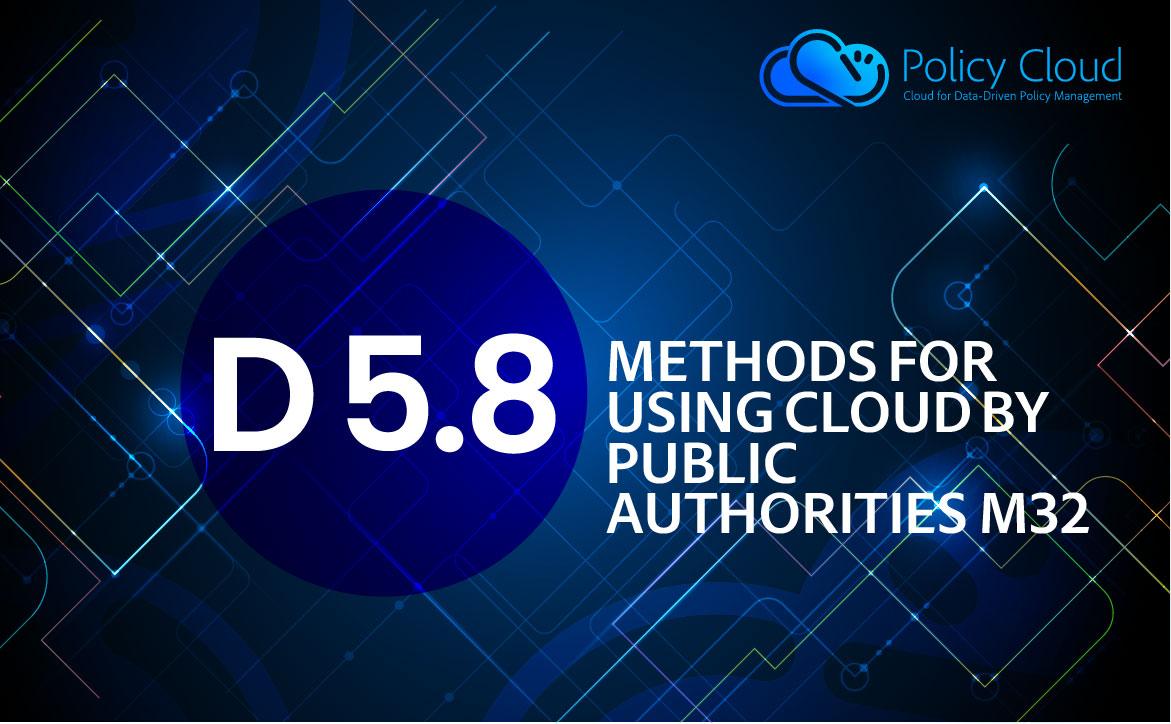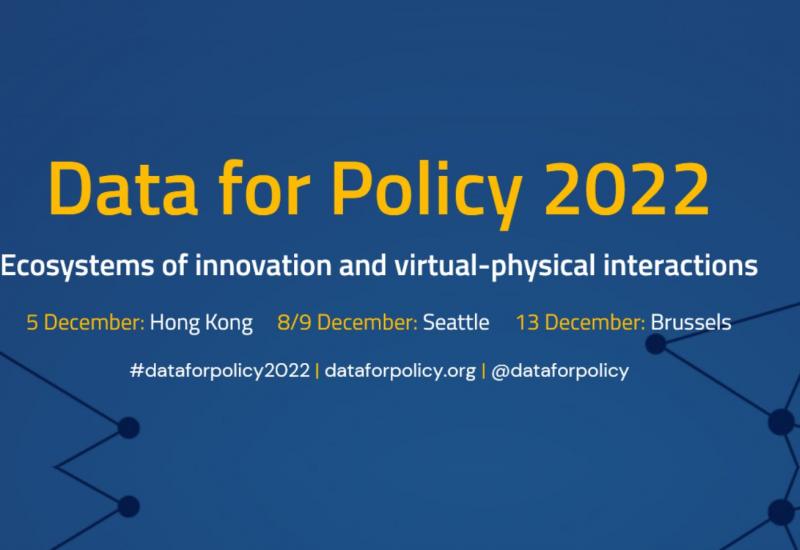
- Cloud for Data-Driven Policy Management
- Contact Us
- Join our community
- Login
D5.8 METHODS FOR CLOUD USE BY PUBLIC AUTHORITIES M32

Submission date:
Thursday, 1 September, 2022
WP:
- WP5: Cross-sector Policy Lifecycle Management
This document is the sixth of the series of deliverables developed under WP5, which aims to realize the overall goal of policy modelling, development and implementation, enabling the analysis of data to be directly exploited in different phases of the policy lifecycle.
This deliverable has been submitted in September 2022 (M33 of the PolicyCLOUD project). It is the second expanded iteration of the deliverable D5.1 ‘Methods for Cloud Use by Public Authorities’ (submitted in August 2021). The main purpose of Deliverable D5.8 is to illustrate how the methodology presented in D5.1, specifying how to exploit the value of different mechanisms (e.g., data modelling, semantic representation and interoperability, analytics, etc.) during the policy lifecycle (from modelling to implementation) in the scope of Cloud environments, as well as the set of proposed adaptive techniques for creating policies using cloud infrastructures and Big Data technologies, can be beneficial for the activities of various institutions with regards to their data-based decision- and policy- making processes.
Deliverable D5.8 is aimed at the PolicyCLOUD partners and participants, a wide range of stakeholders, involved in the topics of data, Big Data and Cloud computing, as well as the wider community of public administrations (PAs), decision-makers and citizens interested in taking advantage of the capabilities and benefits of Cloud technologies and Big Data in their policy-making. It follows the structure of Deliverable D5.1. and includes additional information and further advancements and contributions from other tasks.
The number of concrete examples and success stories related to the use and utilisation of the Cloud and Big Data in the public sector in different countries (Section 2.2.) has been expanded. In addition to the four PolicyCLOUD pilot use cases (namely Italy (Lombardy Region), Spain (Autonomous Community of Aragon), Bulgaria (Sofia), and the UK (Camden Town, London)), the document now includes good practices from the City of Barcelona (Spain) and Germany – as rapidly developing digital, innovative and smart city hubs, with the aim to raise further awareness and serve as an inspiration for the representatives of the public sector and a wider range of stakeholders regarding the capabilities and the value of the Cloud and Big Data in the public sector. A new section dedicated to data space ecosystems in the public sector has been added as well (Section 3.6).
The Methodology for Policy Making in Cloud Environment, initially proposed in D5.1. (Section 4) has been expanded as well, and Sofia’s use case during the PolicyCLOUD project is used as a concrete practical example for the methodology validation (Section 4.3). To present the application of the methodology within the context of the PolicyCLOUD, all the steps that users need to take from creating a specific policy, to saving the policy in the Cloud, and then being able to put it into practice and receiving analyses that they can use in their work are illustrated.


